Health
-

6 keys to a long, healthy life (ice cream included)
Also, why reading Ben Franklin beats climbing Mount Everest
-

Six cancers rising faster in younger adults than older ones
Large new global study fuels growing concern over trend of increases in several types

-

What’s next for GLP-1s?
Scientists eye new treatment targets for popular weight-loss drugs, from heart failure to addiction
-

Pricey blockbuster GLP-1s are costing users — and most of the rest of us, too
Health insurers are passing along cost for coverage in form of higher rates across the board, policy researcher says
-

Drinking 2-3 cups of coffee a day tied to lower dementia risk
Caffeinated tea also found to slow cognitive decline in study

-

New AI tool predicts brain age, dementia risk, cancer survival
Unlike other AI models, BrainIAC needs limited data to ID key neurological health indicators

-
Better odds
Test could predict which children with T-cell acute lymphoblastic leukemia are best candidates for clinical trials of new therapies, research finds.
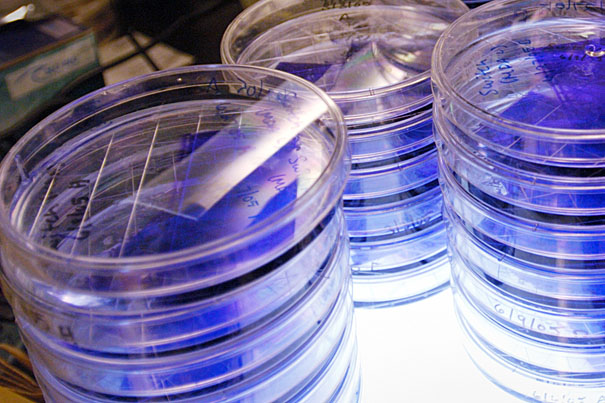
-
A bloomin’ spectacle
A rare and curious plant from Sumatra’s rainforest has bloomed at Harvard.
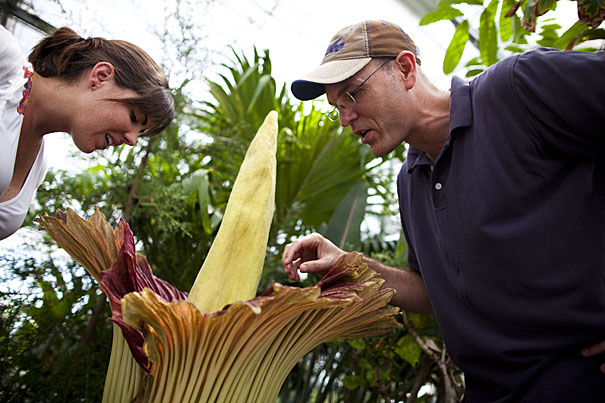
-
‘Test and treat’ won’t stop HIV/AIDS epidemic, study finds
Implementing a program of universal HIV testing and immediate antiretroviral treatment (ART) for infected individuals could have a major impact on the HIV/AIDS epidemic in Washington, DC, but a new study by led by…
-
Throwing a genetic switch
Study finds that maternal genes in mice predominate in the developing brain, while paternal genes gain the upper hand in adulthood. Researchers also find 1,300 imprinted genes in the brain, far more than previously known.
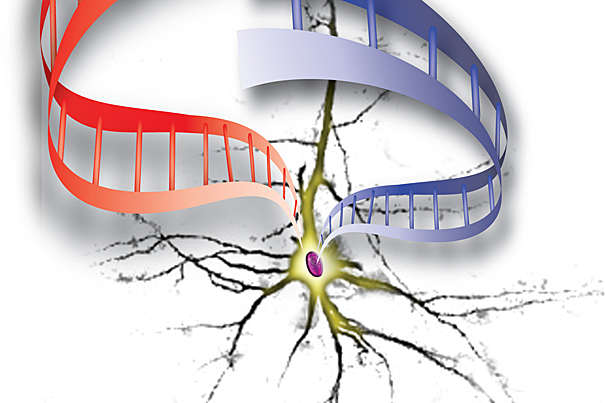
-
Mom’s influence comes first
Genome-wide analysis of mice brains has found that maternally inherited genes are expressed preferentially in the developing brain, while the pattern shifts decisively in favor of paternal influence by adulthood.…
-
Study finds higher STD rates among users of erectile dysfunction drugs
Users of erectile dysfunction (ED) drugs have higher rates of sexually transmitted disease (STD) than do non-users, Harvard researchers at Massachusetts General Hospital have found after analyzing insurance records of…
-
More Than Two Billion People Worldwide Lack Access to Surgical Services
More than two billion people worldwide do not have adequate access to surgical treatment, according to a new study from the Harvard School of Public Health (HSPH). The Harvard researchers…
-
Rare variants in gene coding may up risk of autoimmune disorders
Rare variants in the gene coding of an enzyme that controls the activity of a key immune cell occur more often in people with autoimmune disorders like rheumatoid arthritis and…
-
With fasting, enzyme turns off body’s production of fats, cholesterol
Fasting helps cause an enzyme with several important roles in energy metabolism to turn off the body’s generation of fats and cholesterol, Harvard researchers at Massachusetts General Hospital have found. …
-
Using nanotechnology to improve a cancer treatment
Harvard and Brigham and Women’s Hospital researchers have devised a method that may allow clinicians to use higher doses of a powerful chemotherapy drug that has been limited because it is toxic not only to tumors but to patients’ kidneys.
-
Improving a cancer drug
Researchers, led by Harvard Medical School Assistant Professor Shiladitya Sengupta, have devised a way to improve a low-cost, effective cancer drug, cisplatin, whose use has been limited by its toxicity.
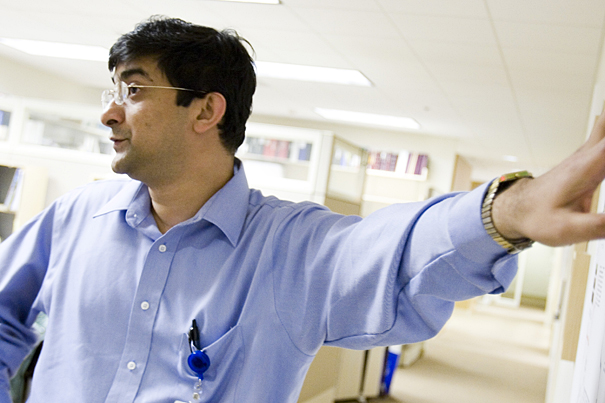
-
The immune system and HIV
Researchers gather to share information about the latest advances in understanding how the oldest part of the body’s immune system might help in the fight against HIV and AIDS.
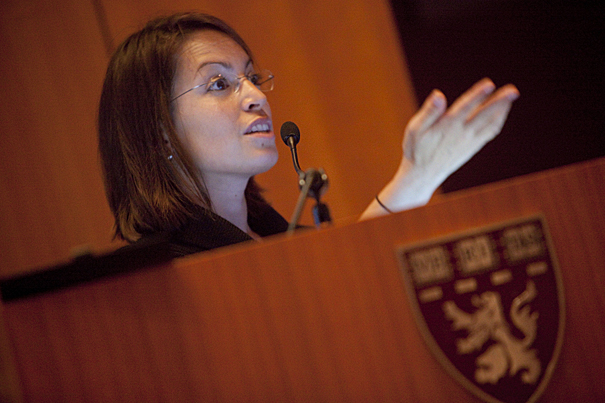
-
A long look at growing old
The Glenn Laboratories hosted the annual symposium on aging, reviewing new developments in understanding the mechanisms of growing old.

-
Be wary of the cassowary
Nature writer Sy Montgomery talked about her hunt for the dangerous cassowary, as well as her passion for nature, during a presentation at the Harvard Museum of Natural History.
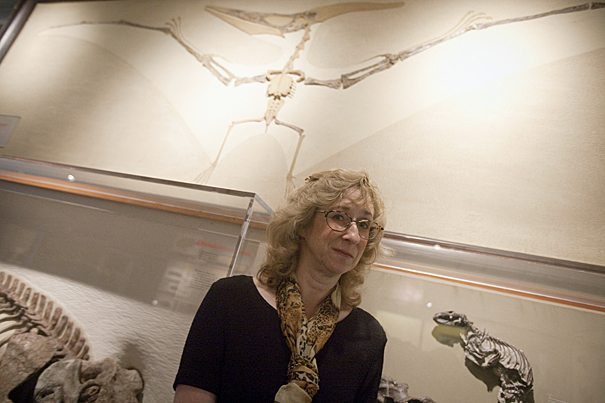
-
Nobel winners and losers
Author Erling Norrby discusses how the Nobel Prizes for the sciences, while often awarding breakthrough efforts, also can miss pivotal findings that made a difference.
-
New type of human stem cell may be more easy to manipulate
Harvard Stem Cell Institute (HSCI) researchers at the Massachusetts General Hospital Center for Regenerative Medicine (MGH-CRM) have a developed a new type of human pluripotent stem cell that can be…
-
New drug extends life of melanoma patients
A therapy that multiplies the effect of a natural disease-fighting antibody has extended the lives of patients with metastatic melanoma in a large, international clinical trial.
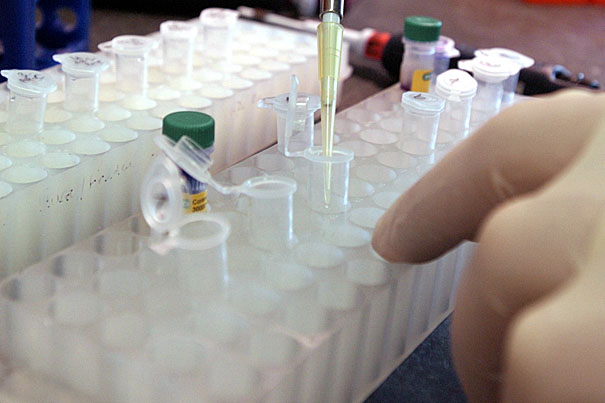
-
The art of science
Susan Mango, professor of molecular and cellular biology and MacArthur award winner, brings her unorthodox approach to research.
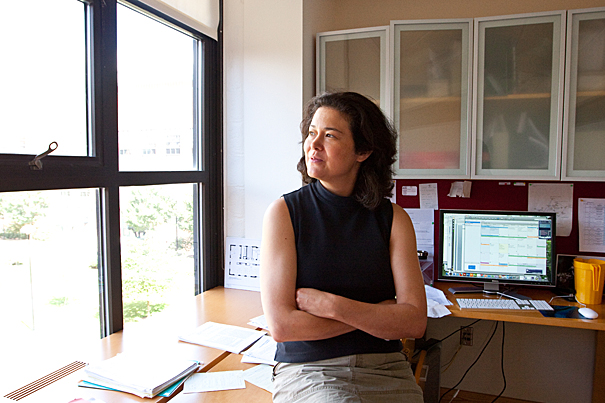
-
In praise of unwanted termites
The star of Africa’s savanna ecosystems may be the lowly insect. Its regularly spaced mounds prove a key to maintaining ecological function in the area.

-
Detailed metabolic profile gives “chemical snapshot” of the effects of exercise
Using a system that analyzes blood samples with unprecedented detail, a team led by Harvard Medical School (HMS) researchers at Massachusetts General Hospital (MGH) has developed the first “chemical snapshot”…
-
New insights into the mystery of natural HIV immunity
When people become infected by HIV, it’s usually only a matter of time, barring drug intervention, until they develop full-blown AIDS. However, a small number of people exposed to the virus progress very…
-
Pres. Faust calls global health one of her main priorities for Harvard;
Declaring the University’s efforts to improve the state of global health knowledge, education, and capacity building to be one of her “very highest priorities” as president of Harvard, Drew Faust…
-
Processed meats come with increased risk of heart disease, diabetes
In a new study, researchers from the Harvard School of Public Health (HSPH) have found that eating processed meat, such as bacon, sausage, or processed deli meats, led to a…
-
Exploring a world within a world
Lichens provide an avenue for student scientific exploration of plant complexity.
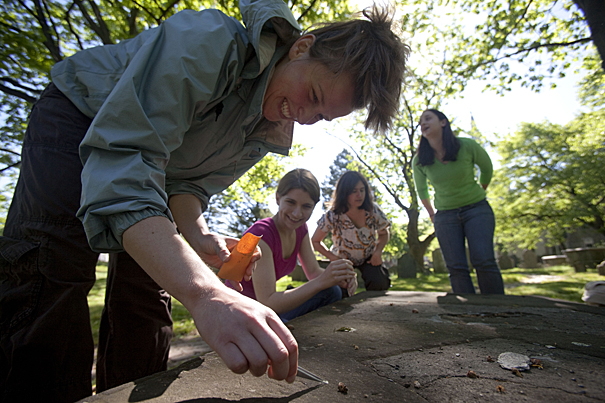
-
Money not cure-all for health care
Analysts from around the world gathered at Harvard Business School for a think tank on health care reform.
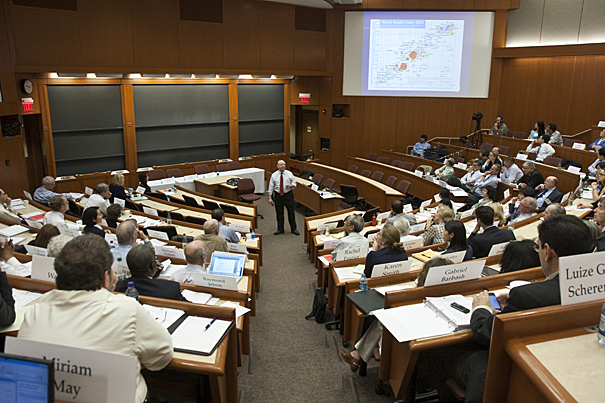
-
Designer vaccines may tailor immune response
In Margaret Atwood’s futuristic The Year of the Flood, sex workers wear “Biofilm Bodygloves” to protect themselves from infection. It turns out, though, that a prototype bodyglove may have already…
-
HIV, malaria, women, and children
Harvard, Boston University, and the Center for Strategic and International Studies hosted a seminar to unveil a report on the future of global health policy that calls for more money for women and children and a continued focus on HIV, malaria and tuberculosis.

-
Gene silencing may cause limitations of induced pluripotent stem cells
Scientists may be one step closer to being able to generate any type of cells and tissues from a patient’s own cells, according to the results of a new study by Harvard…
-
Doubling health spending in low-income countries improving health budget less than expected
Low-income countries have doubled their domestic spending on health overall, reports a major new study over 12 years ending in 2006, but international health aid may not be adding as…
-
Height and death
Mothers shorter than 4 feet, 9 inches in low- to middle-income countries had about a 40 percent higher risk of their children dying within the first five years of life than mothers who…

